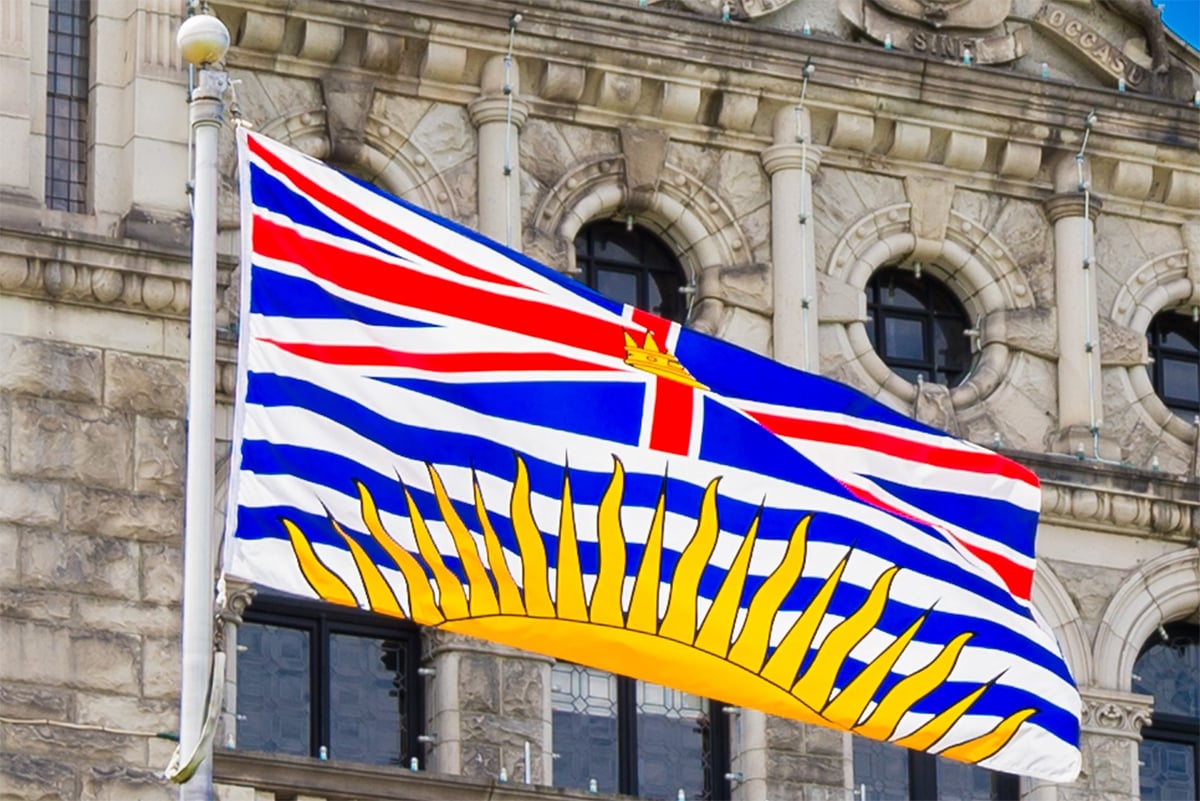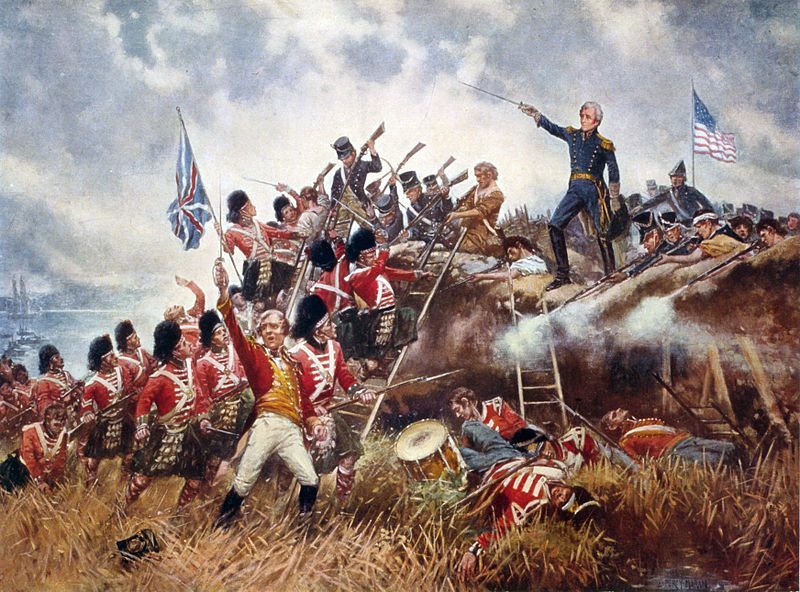How do we deal with the Americans?
How can we do business with them, when they so often seem antagonists rather than partners and friends? How do we build continental industries, when the continent gets divided by border blockages?
After all, our national mythology contains images like the following one, seared in the deepest regions of the limbic systems of patriotic Canucks like me:
Read Also

British Columbia farmers to receive increased AgriStability supports
B.C. farmers to receive bump in AgriStability compensations due to weather concerns, international trade instability
Yes, there we are, struggling heroically against an American invasion in 1812. We’re only an independent nation now because we won that war.
Like many Canadians I have an extremely sensitive scar on the surface of my psyche that reacts violently when I sense any American aggression against my beloved homeland. This scar gets pricked every year when I go down to the World Pork Expo in Des Moines, Iowa, and have to deal with American claims or actions against our hog industry.
It’s easiest to deal with when the problems are caused by manifestly unfair American actions like the imposition of Country of Origin Labeling. That allows Canucks to be outraged and indignant, which is psychologically gratifying if in no way adequate compensation for the grievous economic harms done to our farmers. Here in Manitoba COOL led to many producers being driven out of the industry as they lost the market for their weanlings. Manitoba producers have built a high-quality industry intimately woven into the U.S. Midwestern hog industry, with us supplying the high health piglets and the Iowans and Minnesotans providing the barns with access to cheap feedgrains. It’s a wonderful example of a continental industry that helps both countries, but which some cynical producer groups and politicians have managed to ravage with COOL. (The World Pork Expo is put on by the National Pork Producers Council that – to its great credit – has always been opposed to COOL and fought hard against it.)
It’s a little more difficult for hyper-patriots like me to deal with American frustration over programs like Quebec’s ASRA and Ontario’s new Risk Management Program. Some – including the federal government – view Ontario’s program as possibly trade distorting and likely countervailable. Hmmmmmmm. That’s a little bit awkward. From what I know about the programs, which is not a bunch, they’re designed as part of “whole farm” packages that should be trade-neutral, but they have seemed to send a lot of money towards hog producers in Quebec and it’s unclear how much is going to hog farmers in Ontario.
The Americans I spoke with about this seemed seemed extremely annoyed with the Ontario program. They have had to live with Quebec’s ASRA forever and like most people in English Canada about many issues, seem willing to just say “That’s a Quebec thing” and shrug their shoulders about it.
But the possibility of an Ontario program boosting pig production there and hurting U.S. sales of pork to Ontario, or causing more Ontario pigs to be shipped to the U.S., has really riled them up. The problem for we of the West is that any future trade action from the Americans would target all Canadian hogs or pork, and that will hit us even if we have nothing to do with the Ontario and Quebec programs.
So what would happen then if we had to deal with another countervailing and dumping situation? Years of legal costs and wrangling, lost markets for years, and distortions to an industry that should be continental-based with no regard for the lines on maps that we call borders. The next pork trade war could get really ugly because we now are importing huge amounts of U.S. pork. If the U.S. shuts down our exports to them, we could find reasons to shut down their exports to us. Would anyone win a war like that?
It’d likely end up like the War of 1812: aggressive actions by the U.S. fail to make much headway, indecisive actions continue for a few years, then it all gets resolved, putting things back pretty much the way they were before.
Except for all the pain and blood and anxiety and bad feeling.
Hopefully that kind of a trade war won’t break out, because no-one needs it. I certainly hope we don’t start the thing.
(The painting on top is Sir Isaac Brock dying at the battle of Queenston Heights. According to Wikimedia Commons: “This Canadian work is in the public domain in Canada because its copyright has expired due to one of the following:
- 1. it was subject to Crown copyright and was first published more than 50 years ago, or
it was not subject to Crown copyright, and
- 2. it is a photograph that was created prior to January 1, 1949, or
- 3. the creator died more than 50 years ago.”
- The painting at the bottom is from the indecisive battle of New Orleans: 1910 painting by Edward Percy Moran. Library of Congress – at http://hdl.loc.gov/loc.pnp/cph.3f03796 )


















